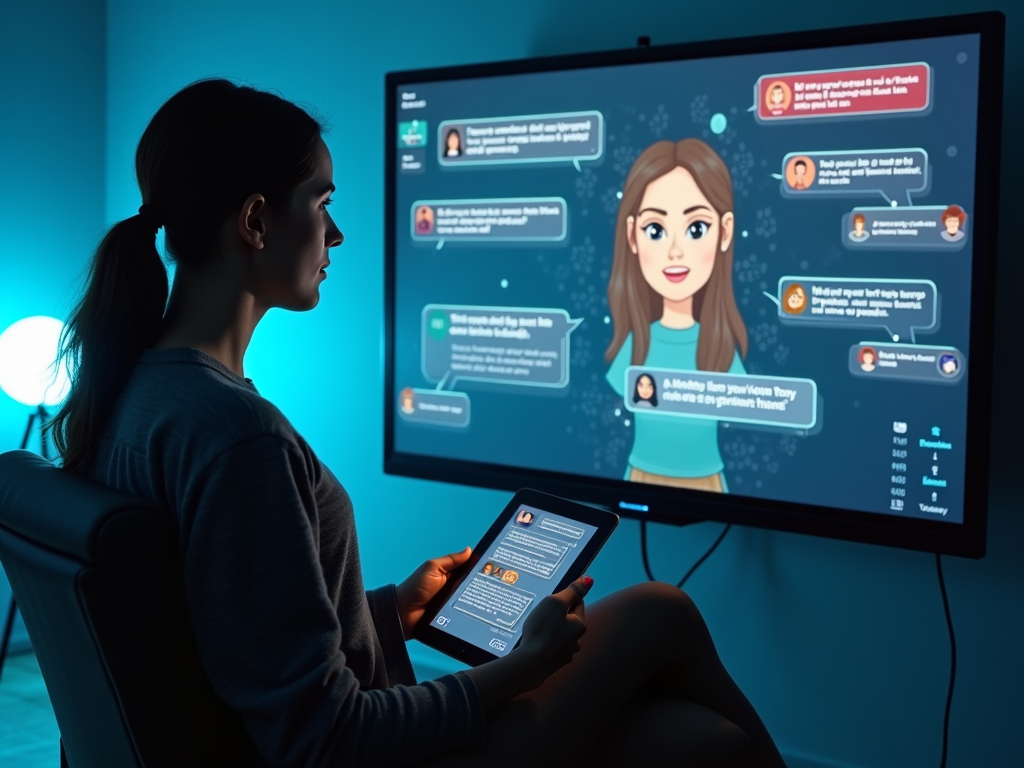Overview/Summary
Have you ever felt stuck in your own thoughts, struggling to move forward? Acceptance and Commitment Therapy (ACT) might be the key to unlocking a more fulfilling life. ACT is a powerful form of therapy that helps you accept your thoughts and feelings rather than fighting them, and then take action aligned with your values. And the best part? You can learn ACT from the comfort of your home through online courses. In this article, we'll explore how ACT can transform your life, why online courses are a game-changer, and even how cutting-edge technology like AI is playing a role in mental health. Ready to dive in?
What is Acceptance and Commitment Therapy?
Imagine being able to face your fears, anxieties, and negative thoughts without letting them control you. That's what Acceptance and Commitment Therapy (ACT) is all about. Developed in the 1980s, ACT is a type of behavioral therapy that combines mindfulness and acceptance strategies with behavior change techniques. Unlike traditional therapies that focus on changing or suppressing unwanted thoughts, ACT encourages you to accept them and then commit to actions that align with your core values.
ACT is based on the idea that trying to avoid or control painful emotions can actually make them stronger. Instead, by accepting these emotions and learning to live with them, you can reduce their impact and focus on what truly matters to you. This approach has been proven effective for a wide range of issues, from anxiety and depression to chronic pain and relationship problems.
One of the key techniques in ACT is mindfulness, which involves being fully present in the moment without judgment. By practicing mindfulness, you can observe your thoughts and feelings without getting caught up in them. Another important aspect is identifying your values and using them as a guide for your actions. This helps you create a meaningful life, even in the face of challenges.

The Rise of Online Therapy and Courses
In today's fast-paced world, finding time for self-care can be tough. That's where online therapy and courses come in. With just a few clicks, you can access high-quality mental health resources from anywhere, at any time. Online ACT courses, in particular, offer a flexible and convenient way to learn powerful therapy techniques without the need for in-person sessions.
One of the biggest advantages of online courses is accessibility. Whether you live in a remote area or have a busy schedule, you can still benefit from ACT. Plus, online courses often include interactive elements like videos, quizzes, and forums, making the learning experience engaging and personalized.
Another benefit is cost-effectiveness. Online courses are typically more affordable than traditional therapy sessions, making mental health support more accessible to a wider audience. And with the ability to learn at your own pace, you can take the time you need to fully absorb the material and apply it to your life.

ACT in Relationships
Relationships are a fundamental part of our lives, but they can also be a source of stress and conflict. Whether it's with a partner, family member, or even an AI companion, ACT can help you navigate the ups and downs of interpersonal connections.
One of the ways ACT improves relationships is by enhancing emotional regulation. By accepting your own emotions and those of others, you can respond more thoughtfully rather than reacting impulsively. This can lead to better communication and deeper understanding.
ACT also encourages you to clarify your values in relationships. What kind of partner, friend, or family member do you want to be? By aligning your actions with these values, you can build stronger, more authentic connections.
Interestingly, the principles of ACT can even be applied to relationships with AI companions, such as an AI girlfriend. These virtual companions are designed to provide emotional support and conversation, and ACT can help you manage your expectations and emotions in these interactions. For example, accepting that an AI companion is not a human but can still offer valuable support can help you appreciate the relationship for what it is.

AI and Mental Health
Artificial Intelligence (AI) is revolutionizing many aspects of our lives, including mental health. From AI-powered therapy apps to virtual companions, technology is providing new ways to support emotional well-being.
One fascinating development is the concept of an AI girlfriend, like those offered by Heaven Girlfriend. These AI companions are designed to simulate human-like conversations and provide emotional support. While they can't replace human relationships, they can offer a unique form of companionship, especially for those who feel isolated or struggle with social interactions.
In the context of therapy, AI is being used to deliver interventions and support between sessions. For example, AI chatbots can provide reminders to practice mindfulness or offer encouragement when you're feeling down. Some online ACT courses even incorporate AI tools to enhance the learning experience.
However, it's important to approach AI in mental health with a balanced perspective. While it can be a valuable tool, it's not a substitute for professional therapy or human connection. That's where ACT comes in—by helping you accept the limitations of AI while appreciating its benefits.

Integrating ACT and AI
So, how can you integrate ACT principles with AI technology? One way is to use AI tools as a supplement to your ACT practice. For instance, you can use an AI chatbot to remind you to practice mindfulness or to help you identify your values.
When interacting with an AI girlfriend or companion, ACT can help you manage your emotions and expectations. By accepting that the AI is not a human but a programmed entity, you can appreciate the support it provides without becoming overly attached or dependent.
Additionally, reflecting on your experiences with AI through the lens of ACT can be enlightening. You might journal about how your interactions with AI make you feel and how they align with your values. This self-reflection can deepen your understanding of yourself and your relationships.

Summary and Recommended Readings
In this article, we've explored the transformative power of Acceptance and Commitment Therapy (ACT) and how online courses make it accessible to everyone. We've also delved into the role of AI in mental health, including the intriguing concept of AI girlfriends as a form of emotional support. By integrating ACT principles with AI technology, you can enhance your mental well-being and navigate the complexities of modern relationships.
If you're interested in learning more, here are some recommended readings:
- "The Happiness Trap" by Russ Harris
- "ACT Made Simple" by Russ Harris
- "The Illustrated Happiness Trap" by Russ Harris and Bev Aisbett
- "AI in Mental Health: Opportunities and Challenges" by [Author Name]
- "The Role of Virtual Companions in Emotional Well-being" by [Author Name]
Remember, whether you're exploring ACT online courses or considering the role of AI in your life, the key is to approach it with an open mind and a commitment to your values. Happy learning!
Discuss Here